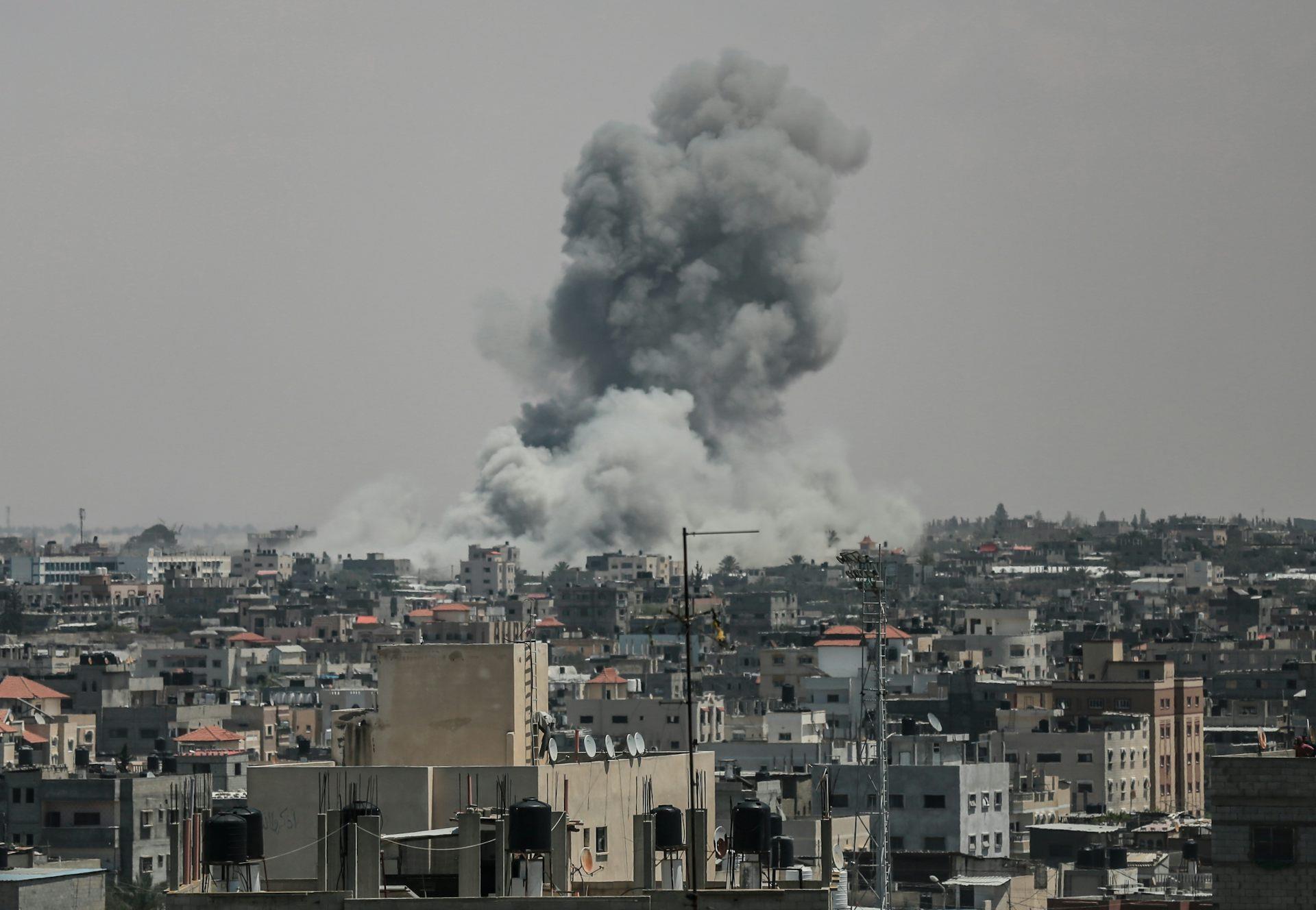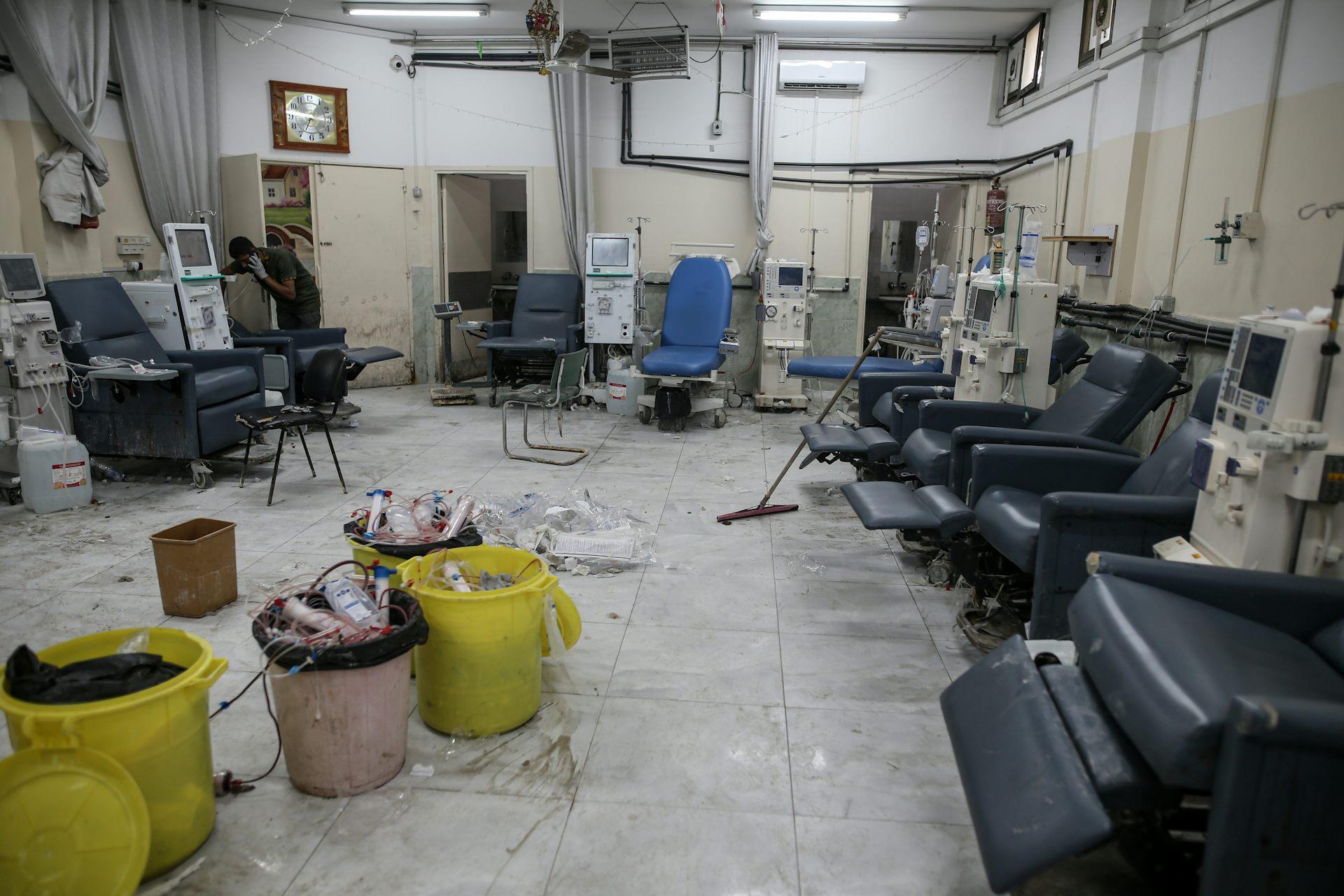
Could Biden Stop Netanyahu's Attack On Rafah?
President Joe Biden warned Israeli Prime Minister Benjamin Netanyahu on May 6 against expanding the Gaza war into Rafah, indicating that this could lead to a shift in US policy on Israel.
A divergence over how to handle the war in Gaza prompted the US to place a hold on shipping US-made bombs to Israel , according to Israeli officials and a US official quoted in Politico, Axios and The Wall Street Journal.
Rafah is one of the only places in Gaza that has not been destroyed in the Gaza war. It is also a refuge for more than 1 million Palestinians , about half of whom are children, who have been displaced from their homes elsewhere in Gaza because of the conflict.
The Conversation spoke with Gregory Treverton , a chair of the National Intelligence Council under the Obama administration and a national security scholar at USC Dornsife College of Letters, Arts and Sciences, to understand the limits of US political leverage in influencing Israel's seven-month war with Hamas.

Smoke rises following Israeli airstrikes on Rafah, Gaza, on May 7, 2024. Photo: Jehad Alshrafi / Anadolu via Getty Images / The Conversation
Is the US's warning to Israel typical for their diplomatic relationship?
This is certainly not without precedent. There have been many US presidents and secretaries of state who have been frustrated with Israel over something, going back to at least the 1973 war between Israel and a coalition of Arab countries.
The US pressed Israel to adhere to a UN Security Council cease-fire resolution then – one sponsored by both the US and the Soviet Union – but Israel, for a time, refused.

US, China in crucial race to put spying eyes in the sky

Global auditions are changing the 'K' in K-pop

The Indian middle class doesn't need a savior
Other presidents have been in the position of saying,“Do this,” and the Israeli comeback is always,“Not quite yet.” So this episode, while very blatant, is hardly unique.
Countries are allies because their interests overlap but are not identical. US history is littered with allies that managed to do what they wanted and not what we wanted them to do.
Years ago, when I was at the International Institute for Strategic Studies in London and would talk about the difficulties of dealing with allies, let alone enemies, a wonderful researcher focused on Israel would comment:“So whoever said it was easy to be a superpower!” Biden would sympathize with that remark.
As Israeli politics and leadership have drifted so far to the right , a lot of the people in Israeli Prime Minister Benjamin Netanyahu's coalition don't really care about the US and what it wants. Netanyahu is now very dependent on the far right for his own political survival, so he is likely to listen to his right-wingers, not to the US.
So, how much political leverage does the US actually have over Israel?
I think at this point, it is really time for the US to say that it is going to call arms deliveries to Israel into question. Israel is going into Rafah after the US specifically said to please not do this without making sure you can keep most Gazans safe.
This does not necessarily require a red line to be drawn – which typically is not very effective – but a clear warning that this decision will influence arms transfers in the future.
The other problem is that while you might assume that Israel is considering how to govern Gaza after the war, there is still no clear, public idea of what the endgame is. How is this supposed to end?
Meanwhile, this escalation is bound to continue polarizing American public opinion on the issue, which is probably an additional reason for the US to try to get the war to stop as soon as possible.
The US is reported to have decided to place a hold on shipping bombs to Israel. Can this influence Israel's wartime behavior?
It probably doesn't matter materially in the short run, but psychologically in the longer run, if arms were stopped that would make a difference. Israel is the largest recipient of US foreign aid and has received more US military assistance than any other country since World War II.
By early March this year, the US had made more than 100 arms shipments to Israel since Hamas' attack on Israel on October 7, 2023.
Israel is now risking an escalating confrontation with Hezbollah, a militant group in Lebanon, in the north. It seems to be in Israel's interest to try to not expand conflict but to limit it.

A view of an evacuated hospital in Rafah on May 7, 2024, after Israel announced that it had taken control of the Rafah border crossing. Photo: Jehad Alshrafi / Anadolu via Getty Images / The Conversation
Given this, why do you believe Israel is so intent on going into Rafah?
Across the political spectrum in Israel, there is a sense that invading Rafah has to be done, it has to be finished, in order to eradicate Hamas . The issue is we never knew exactly what finishing means. And most of us in the national security business think there is no way Israel can totally eradicate Hamas.

Sign up for one of our free newsletters
- The Daily ReportStart your day right with Asia Times' top stories AT Weekly ReportA weekly roundup of Asia Times' most-read stories
Before October 2023, Hamas was never popular in Gaza because it didn't properly govern, but the Israeli attack has made it more popular , especially on the West Bank, because it stood up to Israel and put the issues of the Palestinians back on the agenda after the world, including the Arab world, which had forgotten it.
The idea of eradicating Hamas seems to be still where Israelis across the spectrum are focused. Therefore, if the remaining Hamas leaders were thought to be in Rafah, then so be it, they are thinking, on to the attack.
What are the national security implications of Israel going into Rafah?
It does create more instability and increases the risk of a widening war. Even if Iran doesn't respond, it is likely that some of its proxies, like Hezbollah, will do something that could deepen this conflict.
We should use the term proxies carefully because the US knows from its own experience that you cannot necessarily control proxy governments or militias. But it seems like this is a kind of invitation for at least Iran's proxies to escalate the conflict.
Gregory F Treverton is Professor of Practice in International Relations, USC Dornsife College of Letters, Arts and Sciences
This article is republished from The Conversation under a Creative Commons license. Read the original article .
Thank you for registering!
An account was already registered with this email. Please check your inbox for an authentication link.

Legal Disclaimer:
MENAFN provides the
information “as is” without warranty of any kind. We do not accept
any responsibility or liability for the accuracy, content, images,
videos, licenses, completeness, legality, or reliability of the information
contained in this article. If you have any complaints or copyright
issues related to this article, kindly contact the provider above.


















Comments
No comment